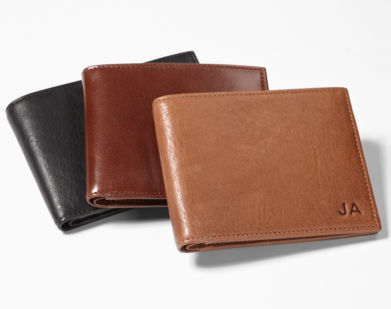Introduction to privacy and anonymity as i see it for Bitcoin.

In this post i would like to discuss the difference between privacy and anonymity / pseudonymity that bitcoin offers and how it compares to other financial transaction we might make; the implications of bitcoin transparency and a few basic tips to help protect your privacy.
Bitcoin is anonymous cash... or so they say... tell that to DEA agent Carl Mark Force implicated in the theft of silk roads seized coins.

Anonymity and privacy have two separate meanings:
* A transaction is “anonymous” if no one knows who you are.
* A transaction “private” if no one knows what you purchased, and the cost.

Cash is king when it comes to anonymous private transaction; for example i buy my morning coffee from a coffee shop which has the same friendly Barista occupying the coffee machine every morning.
Me and him we get along well; yet he doesn't know my name, address, account number etc; he does know how much i pay for coffee but that is between me and him (buyer and seller) he has no identifiable information about me. if i stopped going there tomorrow he would have no mean to find me. further more there is no paper trail that has any current or future identifiable information that could link this sale to me.
If i had paid via a credit card on the other hand that would be a completely different story, now he has my name on the front of the card and also has a record that a card registered to me was used to purchase my coffee; also the credit card company and any of their affiliates would know i like to drink coffee at 9am 5 days a week from this particular coffee shop and my takeaway cap costs me $4. i have lost my anonymity and my privacy
In bitcoin accounts can be generated online/offline without any registration or attached identity this is where bitcoin get it pseudonymous element; you control an address but unless you make that information public nobody know who 'you' are. even if my name was Lazlo on BTCtalk and i received bitcoin for pizza the link to my real world identity is weak.
Privacy in bitcoin is far less than that of cash. every transaction is recorded for public to see, in the case of the credit card only the affiliated companies 'should' have access to that data; in bitcoin the record is open, public, immutable and the ledger is widely distributed. The saving grace is the information is a bit sketchy; a transaction will have 1 input and at least 1 output (unless it's an OP_RETURN), most time's it will have 2 output; 1 to transfer the funds to the recipient and one to return the change to me (input - funds2Recipent - Fee = change); in most modern wallets this return address will be to a freshly generated address and not the original source address. this mean deciphering what amount went where is difficult but their are algorithms that do a pretty good job at using the transaction output id, combined with the amount's and potentially future transactions to determine what was what.
So.. not so bad so far; everyone know that someone made a transaction and purchased something for price x or potentially price y.
The main problem occurs when an account get tied to your identity (AML/KYC, Slip up), now the past interactions between your confirmed account can be scrutinized and potentially leave a trail of bread crumbs in the form of linked inputs to transaction that uncover a whole chain of addresses under you control; this is not just a problem now; because the block chain never forgets your previous history. i will say that any analysis of your address cannot be a matter of fact unless somewhere along the chain another transaction can be verified as you thus giving the address chain more validity but still not certainty.
It is for this reason a number of Bitcoiner's have multiple wallets with different intended purposes. you could have a everyday wallet; a trading wallet and a savings wallet. the complexity just increased 3+ fold; how do you transfer funds between these wallets without implicating a connection with the source wallets? i.e i want to transfer some funds from my trading wallet to my savings wallet.

One method is use a middleman - a coin mixer; these mixing services will take your deposit and forward you completely separate coins with no sign up or identification needed. Generally the mixing service knows their customers intention and will not retain log files of transactions after a certain amount of time (say 24 hours in case you raise a dispute) similar to a VPN service, although VPN services often keep no logs at all.
How it work is the coin mixer's have a buffer of fund's sent to them from previous users and as you add your deposit to the one side of the buffer some funds from the other side of the buffer are sent to your forwarding address; amounts in and out are obfuscated by means of randomized/custom fee's and time delays.

This simple method has just introduced another layer of protection for your privacy, it's not a magic bullet but it is another step in the right direction. i have a bitcoin mixer that i have used a number of times and have created a step-by-step guide on how a transaction is preformed. you can view this guide at [https://steemit.com/crypto-news/@steempower/how-to-protect-your-privacy-with-bitmixer-io-btc-mixing-service-step-by-step](https://steemit.com/crypto-news/@steempower/how-to-protect-your-privacy-with-bitmixer-io-btc-mixing-service-step-by-step)
Maintaining separation of wallet / keys and retaining privacy in bitcoin is important; bitcoin mixers are only one option and there are other methods available to you such as stealth addresses, confidential transaction, reusable payment codes and more but we might leave them for another day.
 hiveblocks
hiveblocks